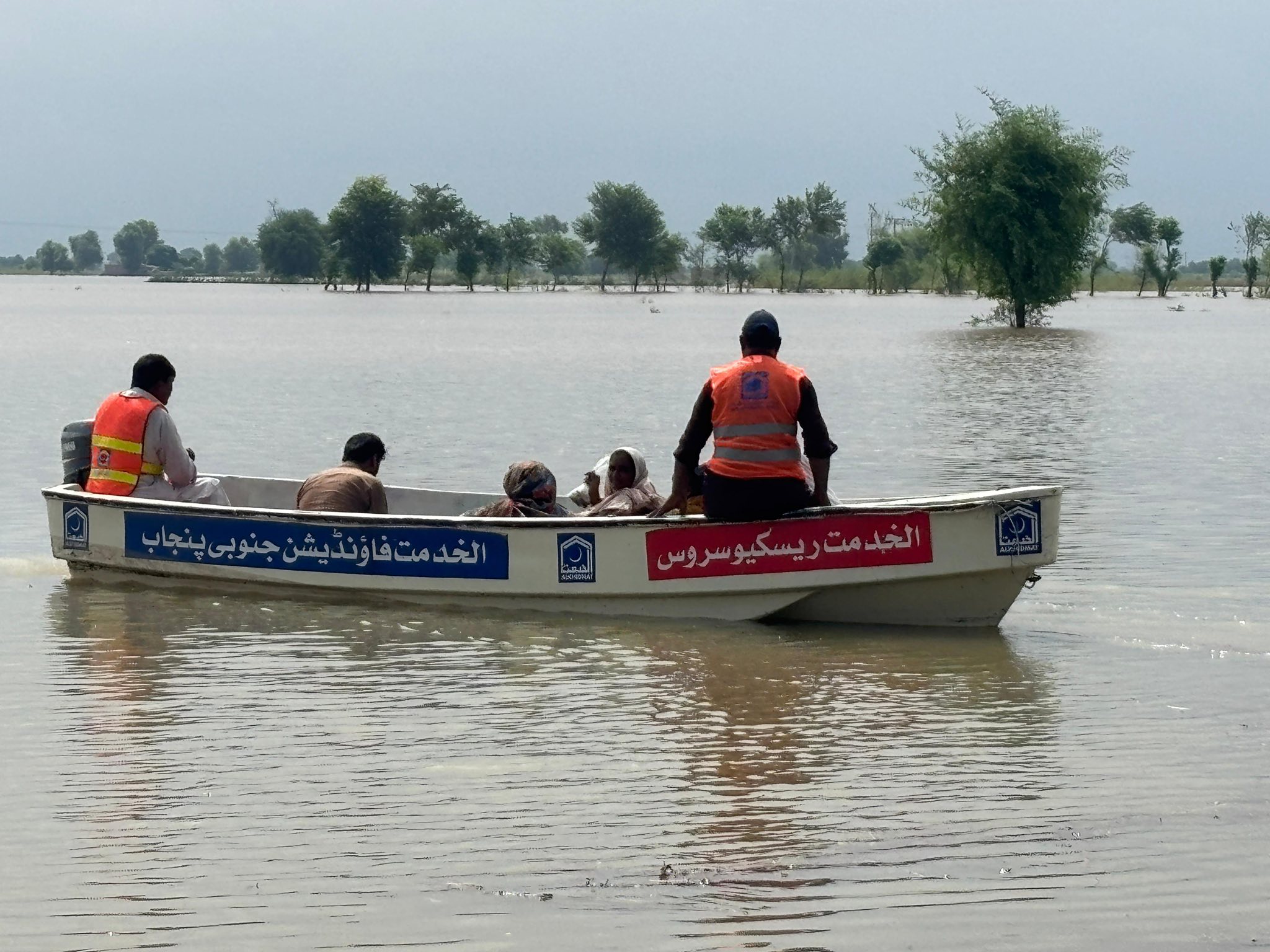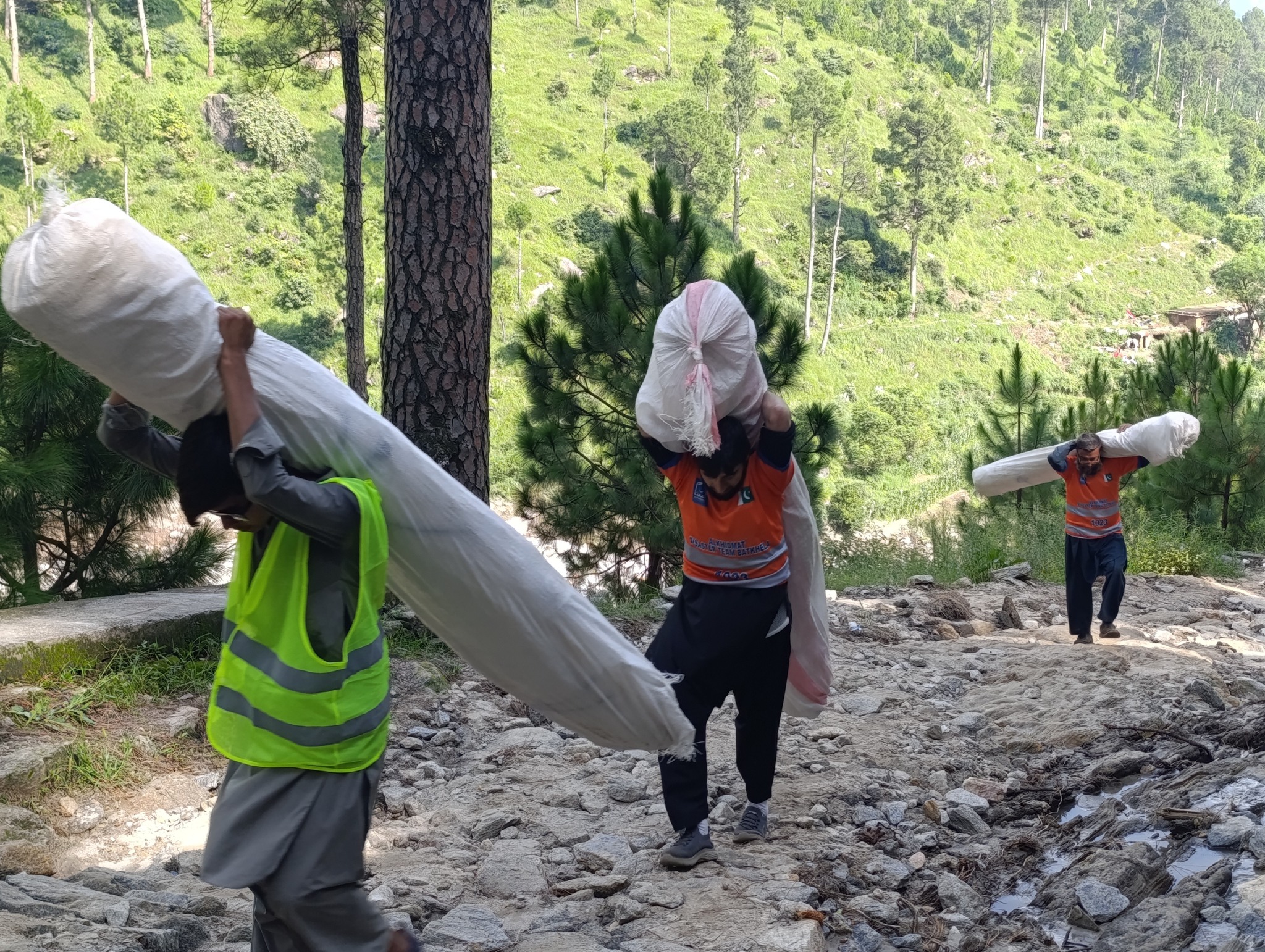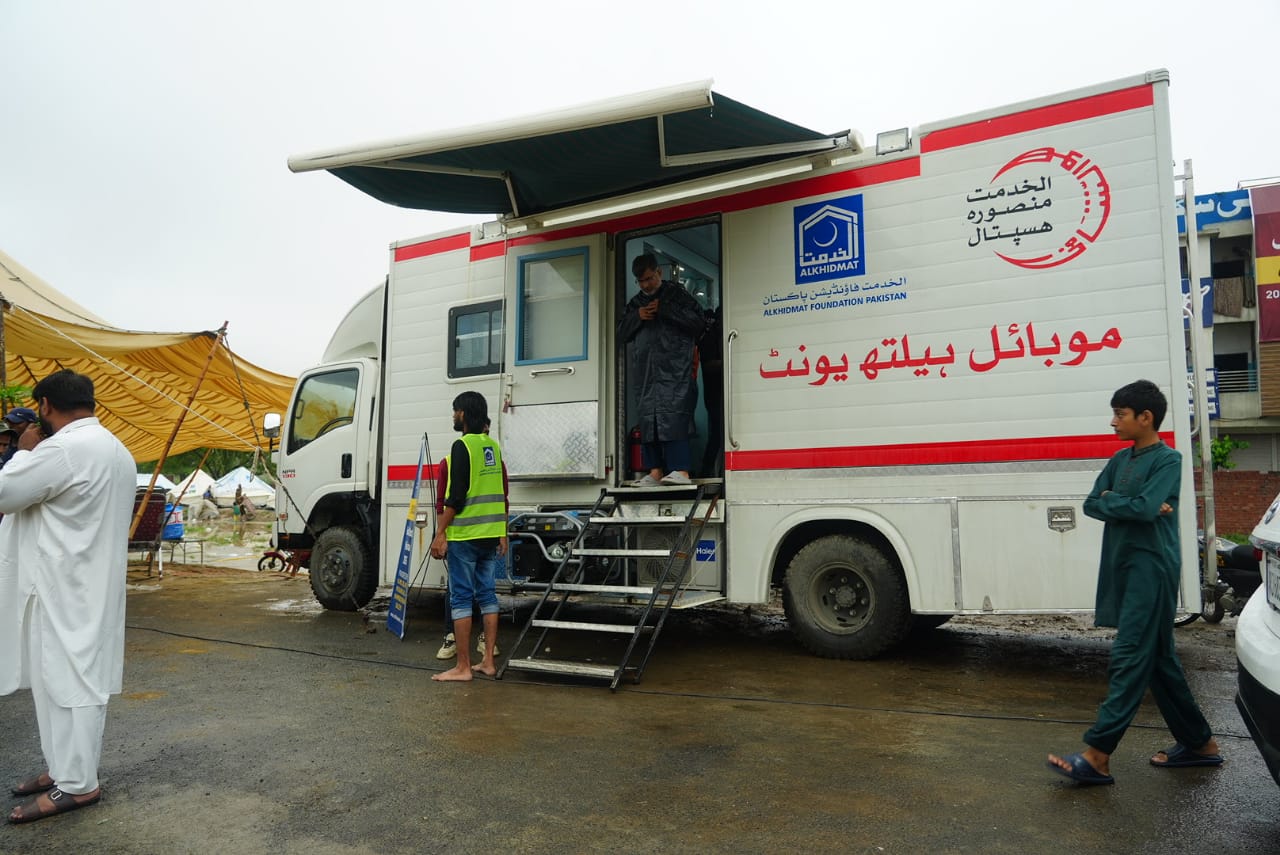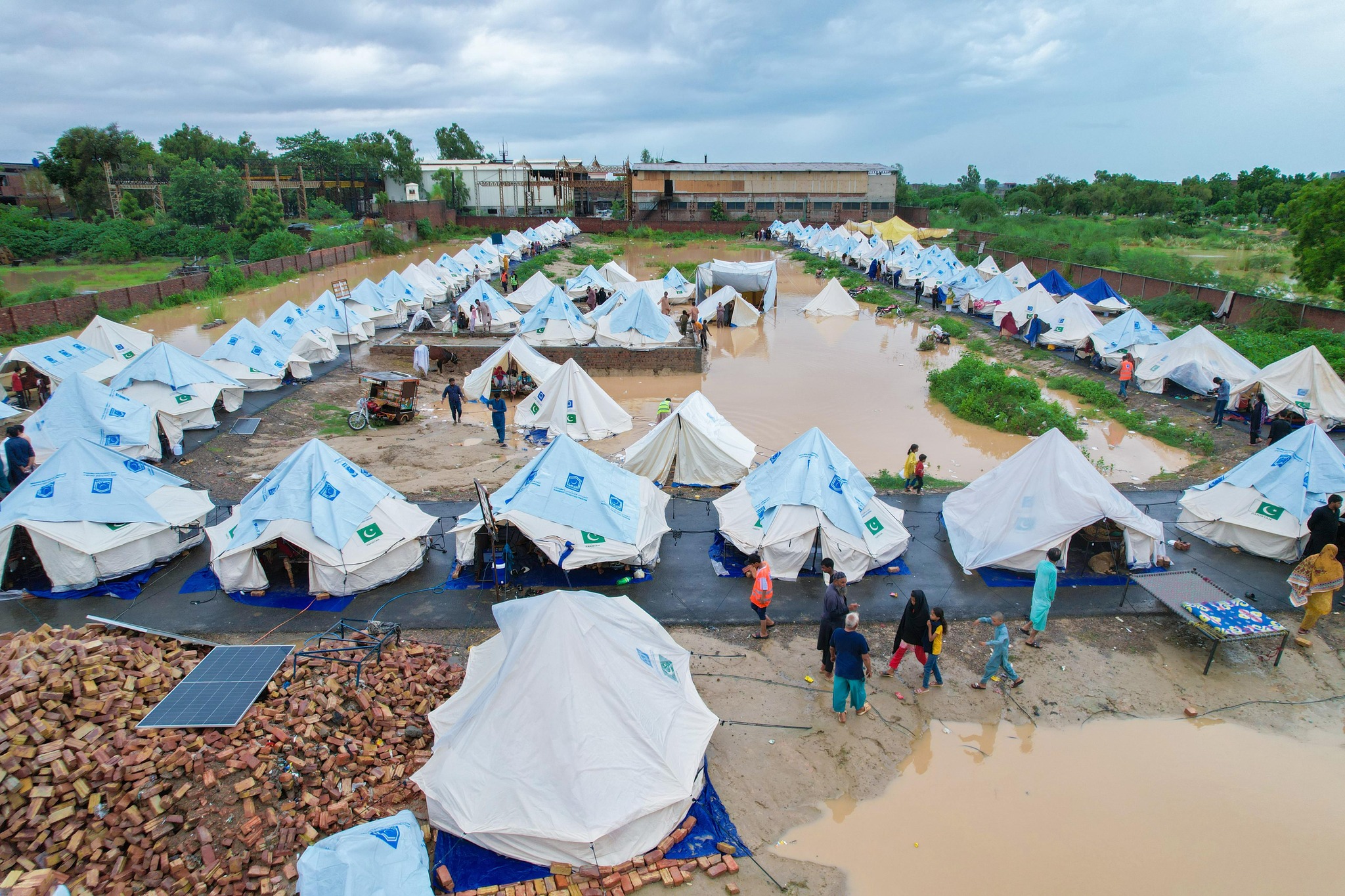- Dr. Azalfa Malik
- September 1, 2025
- Updated about
The impact of climate emergencies in all acute manifestations of tragedy has struck Pakistan this summer turned monsoon of 2025. Not a single region or province has been spared from the devastation unleashed by torerntial rains, flash floods, cloudbursts and subsequent landsliding We see news on all broadcast media about how the death count simply keeps rising and how the water inundates yet another village, but do we actually know the real impact, its extent and hondeeply entrenched these ever rising numbers of casualties are in reality?
A study from Yale Public Health reveals that the health consequences of flooding are more extensive than previously thought. Besides immediate risks like injury and infectious diseases, flooding significantly increases the risk of death from heart disease, breathing problems, and mental health issues. Accidental deaths included those from falls, fractures, open wounds and drowning; while non-accidental deaths involved heart, stomach and lung problems, infections and mental disorders.
In the wake of the recent devastating floods, Alkhidmat Foundation Pakistan initiated a quick comprehensive and large-scale relief operation to provide immediate aid and support to the affected communities. Recognizing the urgency of the situation, AKF has mobilized significant resources and personnel to address the multifaceted needs of those impacted by the disaster.

Latest flood update stats across Pakistan
Khyber Pakhtunkhwa Flash floods have claimed 279 lives and damaged 2,113 homes, causing widespread displacement.
Sindh Torrential rains led to 42 deaths and severe damage to 87 houses, adding to the humanitarian crisis.
Balochistan 23 people have died, and 114 homes have been reported damaged as floodwaters ravage remote areas.
Gilgit-Baltistan With 45 fatalities and 998 homes affected, mountain communities are battling the harsh aftermath of glacial floods.
Azad Jammu and Kashmir: 23 lives lost and 1,081 houses damaged in rain-triggered landslides and flooding.Islamabad Capital Territory: 8 deaths and 65 house damages reported as urban flooding disrupts daily life.
Punjab 165 people have lost their lives, and 220 houses have been damaged in the devastating floods sweeping the province.
At the front line
As a prompt and necessary response to these recent fatal floods, Alkhidmat Foundation has launched an immediate, comprehensive relief operation that spans the entire country. Alkhidmat as the leading organization of large-scale emergency and disaster management in Pakistan recognized the criticalness of the situation to swiftly mobilize substantial resources, accessible aid and largest arsenal of trained volunteers. A fully-equipped Disaster Responder unit has been deployed, enabling the foundation to effectively manage and respond to urgent crises as they arise. This specialized unit is equipped to handle a range of emergencies, ensuring that the foundation can provide timely and effective assistance. Our efforts are focused on gathering and providing essential aid to all affected communities to address their diverse needs as soon as possible.

A key component of this relief effort is the distribution of essential supplies to the hardest-hit areas. To this end, Alkhidmat Foundation has dispatched over 20 aid trucks, each carrying vital provisions (like food, shelter, water, medicines) to assist those who have lost their homes and livelihoods. This logistical undertaking is crucial in ensuring that basic necessities reach the affected populations promptly. In addition to providing essential supplies, the foundation is also prioritizing the delivery of emergency medical care. With over 20 ambulances actively deployed, Alkhidmat Foundation is providing critical medical services to those in need.
Delving into details of the damage
Weather patterns driven by climate change are causing more severe flooding around the globe increasing the risk of potentially life-threatening diarrhea among children under the age of five, particularly in Pakistani regions with lower income families which unfortunately make up the majority of our nation.
Massive floods especially in the monsoon season create numerous health risks including drowning, injuries, and hypothermia during the event. In the aftermath, waterborne diseases (like cholera, dysentery and typhoid) and vector-borne diseases (such as endemic disease like malaria and dengue) can spread due to contaminated water and increased mosquito breeding grounds. Communicable skin diseases spread faster than they can be treated. Seepage and water logging in previously dry construction provided a proliferative breeding ground for black mold, which thrives exponentially in damp, humid crevices and can cause serious respiratory illnesses like pneumonia. Electrical hazards rise dramatically, along with fire incidents both inside homesinvolving switches, short circuits and appliances as well as outside on transformer cables and local grid stations.

In the North Western province, the battle against poliovirus becomes yet another insurmountable challenge due to incomplete vaccination because of rising inaccessibility and damaged infrastructure. Tuberculosis rears its head in the aftermath of flood-stricken areas with crowded accomodations, communal shared rooms and inadequate sanitation The exacerbation of such diseases as well as pre-existing chronic conditions, potential malnutrition and starvation due to disrupted food and healthcare access makes way for mental health decline and PTSD. All these medical issues are further compounded by social aspects such as lack of stable income, household finances, insufficient rations and the dire absence of any occupational rehabilitating support from the national government, which conveniently ignores the aggravating situation at hand to focus on self-seeking promotions and tone-deaf advertisement. Alkhidmat Foundation Pakistan's response to the floods demonstrates a strong commitment to humanitarian principles. By mobilizing a wide range of resources, including essential supplies, medical services, and trained personnel, the foundation is working to alleviate the suffering of those affected by the disaster. Underpinning the entire relief operation is the tireless dedication of hundreds of trained volunteers. These individuals are actively engaged in rescue and relief efforts, working diligently to provide support to affected families. Their commitment and expertise are essential in ensuring that aid reaches those who need it most and that the affected communities receive timely support in their hour of need.
This is unfortunately not a situation where some superficial measures can undo the vast damage inflicted by flash floods, but rather it is an alarming situation that needs each and every one of us citizens to come together in rebuilding the very foundation of our society. In the wake of this massive climate catastrophe, there are no Pakistanis spared.
The ongoing relief operation highlights the importance of coordinated efforts in times of crisis and underscores the vital role of humanitarian organizations in providing assistance and support to vulnerable populations. Even if you have not experienced or been exposed to the same level of grave loss as others in geographically-compromised areas of our country; you are simultaneously vulnerable to it all the same. So donate generously thinking of the plight of affectees and how you would want to be helped, had it been you in their place.
Let us all renew our intentions for charity and bring along the patriotic vigour and ingrained Pakistani compassion that we celebrate the day of Independence with every year
Play your part!
Alkhidmat Foundation has made the act of charity super simple for anyone who wants to help
us help the flood affectees, so perform your own sadqa-e-jariya via any of the five options
according to your preference.
1. Website Donation:
Simply visit Alkhidmat's Donation Page and click on "Donate Now".
2. Bank Transfer For Zakat:
Account Title: Alkhidmat foundation Pakistan Zakat
Bank Name: Bank of Punjab
Account Number: 3880067845100081
SWIFT CODE: BPUNPKKA002
IBAN: PK16BPUN388006784510008
3. Bank Tranfer For Sadaqah:
Account Title: Alkhidmat Foundation Pakistan
Bank Name: Meezan Bank
Account Number: 02430101034665
SWIFT CODE: MEZNPKKA
IBAN: PK11MEZN0002430101034665
4. Schedule a Cash/Cheque Pick-up;
You can call at 0800 44448 and the foundation will arrange to collect cheque or cash directly from your doorstep.
5. Mobile Payments (EasyPaisa/Jazz Cash)
Open your preferred app, navigate to other payments under the "Donations" section, choose "Alkhidmat Foundation" and proceed with your donation.
Bio.
show more

It is a long established fact that a reader will be distracted by the readable content of a page when looking at its layout.
It is a long established fact that a reader will be distracted by the readable content of a page when looking at its layout.